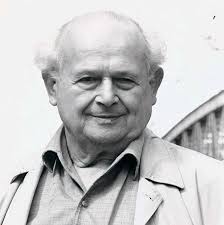In today’s fast-paced world, many of us struggle with habits that create suffering in our relationships with ourselves and others. However, there are powerful tools available that can help us see the world differently and interrupt these destructive patterns. Two such tools are the Feldenkrais Method and Nonviolent Communication (NVC). When combined, they offer a game-changing recipe for fostering deeper understanding, empathy, and connection.

The Feldenkrais Method, developed by Dr. Moshe Feldenkrais, is a form of somatic education that uses gentle movement and directed attention to improve physical and mental functioning. It is based on the principle that our bodies and minds are interconnected, and by enhancing our awareness of movement, we can create new neural pathways that lead to improved posture, flexibility, and overall well-being.
Nonviolent Communication, created by Marshall Rosenberg, is a communication framework that emphasizes empathy, compassion, and understanding. It encourages individuals to express their feelings and needs honestly while also listening to others with empathy. NVC helps to break down barriers and build bridges between people, fostering a sense of mutual respect and cooperation.
When the Feldenkrais Method is combined with Nonviolent Communication, the results can be transformative. Feldenkrais helps individuals become more aware of their physical sensations and movements, which can lead to greater self-awareness and emotional regulation. This heightened awareness can then be applied to NVC, allowing individuals to communicate more effectively and empathetically.
By integrating Feldenkrais and NVC, individuals can develop a new perspective on the world and their relationships. Feldenkrais encourages a mindful approach to movement, helping individuals become more present and attuned to their bodies. This mindfulness can translate into better communication skills, as individuals become more aware of their own emotions and the emotions of others.
Many of us have ingrained habits that create suffering in our relationships, such as reacting defensively or shutting down emotionally. Feldenkrais and NVC provide tools to interrupt these habits and replace them with more constructive behaviours. Feldenkrais helps individuals become more aware of their physical responses to stress, while NVC offers strategies for expressing feelings and needs in a non-confrontational manner.
Ultimately, the combination of Feldenkrais and NVC can lead to stronger, more fulfilling relationships. By fostering self-awareness, empathy, and effective communication, individuals can create a foundation of trust and understanding. This foundation can support healthier interactions and reduce conflict, leading to more harmonious relationships with oneself and others.
The Feldenkrais Method and Nonviolent Communication are powerful tools that, when used together, can transform the way we see the world and interact with others. By enhancing self-awareness and empathy, they offer a game-changing recipe for interrupting habits that create suffering and building stronger, more meaningful connections. Whether you’re looking to improve your relationship with yourself or others, integrating Feldenkrais and NVC into your life can be a profound and rewarding journey.